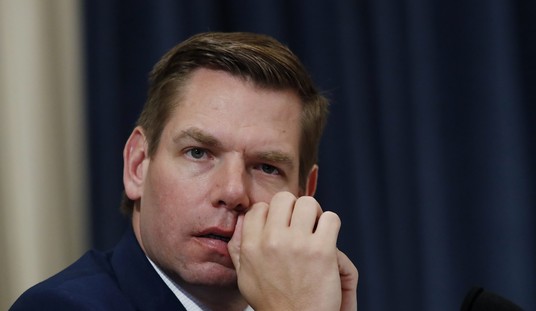The impending gun charges against Hunter Biden are not simply a story of interest because the defendant happens to be the son of President Joe Biden. Rather, the situation is quite interesting from a constitutional perspective, specifically the right to keep and bear arms.
Reports suggest that Hunter is expected to be indicted on a federal gun charge (or charges) by the end of this month. Given his position as a member of the ruling class, it is not likely that he will face any real punishment. America does have a two-tier justice system, after all.
But for those of us who are not “in the club,” as comedian George Carlin so eloquently pointed out years ago, charges like these could be far more serious, which is why this case gives us an opportunity to address an instance in which the government violates one of our most cherished natural rights.
David Weiss, the special counsel handling Hunter Biden's alleged criminal activity, expects to indict the president's son on a gun charge by the end of September.
That news comes after the judge handling the case ordered the DOJ to give an update on its timeline.
The charges are believed to be related to violations of federal law:
Barring some unforeseen delay that the judge would have to sign off on, the DOJ believes it will have an indictment delivered by a grand jury by September 29, 2023. Specifically, the charge mentioned is related to Title 18, United States Code Sections 922 and 924 (and subsections within), which deal with Hunter Biden's illegal purchase of a firearm while on narcotics.
The United States Code sections that Hunter could be charged come from the Gun Control Act of 1968, which prohibits certain categories of people from owning guns. In the United States Code, one of the categories includes people who are “an unlawful user of or addicted to any controlled substance,” as defined in Section 102 of the Controlled Substances Act. In English, this means if a person is a user of, or is addicted to, illegal drugs, like marijuana, federal law says they can’t own a firearm.
(It bears noting that the reference to Section 924 implies Hunter could also be charged for making a false statement in connection with obtaining the gun, though that isn't entirely clear from the DOJ's filing -- which may be by design.)
After the Supreme Court’s ruling in New York Rifle & Pistol Association v. Bruen, recent court decisions have challenged this law. In April, a federal judge dismissed a case against a woman who was charged with possession of a gun while also being an unlawful user of marijuana. She had also been charged with giving the firearm and ammunition to her husband, who also used marijuana. Citing the Bruen decision, the judge ruled that these prohibitions are unconstitutional and go beyond historical firearm regulation traditions.
In another case, the Fifth Circuit Court of Appeals issued a similar ruling last month, according to a piece from RedState’s Ward Clark:
The case was brought by one Patrick Daniels, who was found in possession of two firearms and several marijuana butts. He was not tested, and there is no indication he was impaired, but he did admit to having used marijuana and so was arrested and sentenced to four years in prison. Daniels’ conviction has now been overturned, and other similar cases in the area under the jurisdiction of the Fifth Circuit (Louisiana, Texas, and Mississippi) may be challenged as well.
Circuit Judge Jerry Smith noted that while tradition might support limits on someone carrying a firearm while intoxicated, it does not “justify disarming a sober citizen based exclusively on his past drug usage.”
The reality is that the government should not have nearly as much say in who is allowed to own a firearm as it does currently. The notion that someone should be deprived of their right to defend their life, liberty, and property because they consume substances the government says they shouldn’t consume is not only absurd but an egregious violation of rights. Smoking a plant should not mean being punished if one also needs a firearm to defend oneself against actual criminals seeking to rob or harm them.
George Washington Law professor Jonathan Turley noted that Hunter might have to use a pro-Second Amendment stance in his defense against the gun charges.
Indeed, Hunter could find himself arguing that people are too often denied rights by the government under claims that they are “insurrectionists.” Sound familiar?
The government has pointed to how “Founding-era governments took guns away from persons perceived to be dangerous.” However, the Fifth Circuit noted that those laws targeted unpopular people, including Catholics, as akin to traitors to the Revolution. Judge Smith wrote that drug users “are not a class of political traitors, as British Loyalists were perceived to be. Nor are they like Catholics and other religious dissenters who were seen as potential insurrectionists.”
There is also the reality that these laws are not enforced consistently. As I mentioned before, no matter what happens, Hunter Biden will be just fine. He won’t get more than a slap on the wrist. Meanwhile, who knows how many are languishing behind bars because they chose to exercise their Second Amendment rights and their right to self-ownership? One should not have to risk being thrown in a cage over such a law, which is why it is a positive sign that courts are ruling against it. Hopefully, it will be struck down completely at some point.














